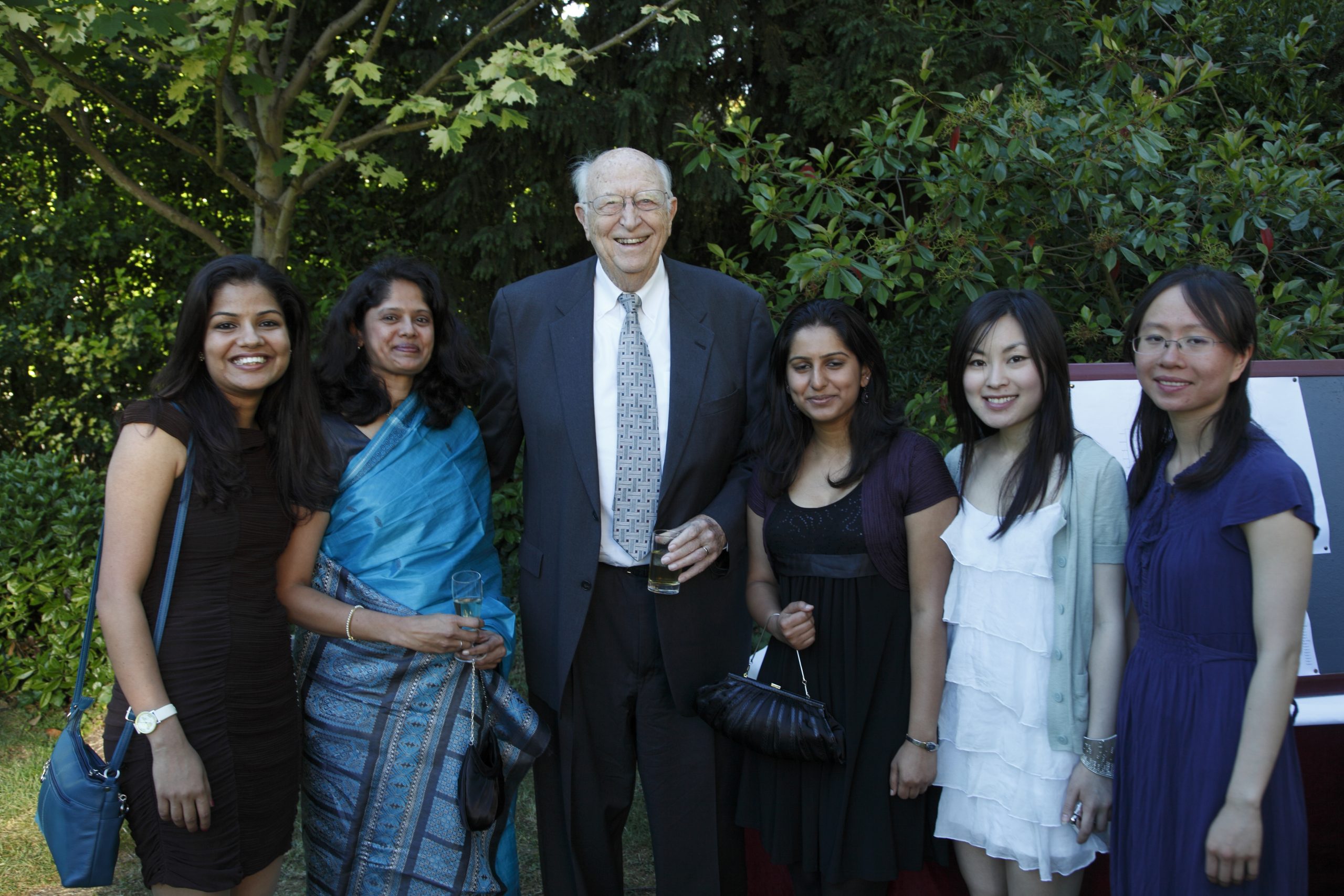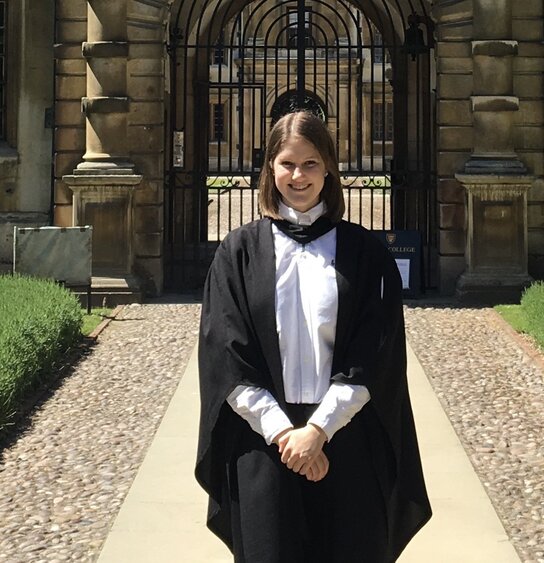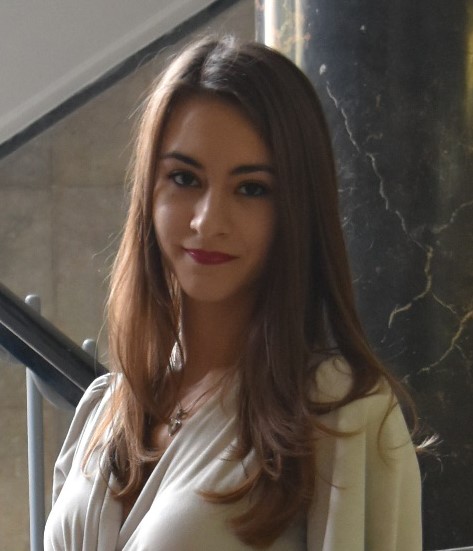
Two scholars are sharing this year's Bill Gates Sr. Prize in recognition of their social leadership as well as their outstanding research.
The award allows Scholars to recognise the impact and contribution to the Scholar community of one of their peers, with particular reference to the Scholarship’s selection criteria.
Two Gates Cambridge Scholars are sharing the 2021 Bill Gates Sr. Prize in recognition of their outstanding research and social leadership.
Emma Soneson and Maša Josipović have been selected for the prize which was established by the Gates Cambridge Trustees in June 2012 in recognition of the late Bill Gates Sr.’s role in establishing the Gates Cambridge Scholarships, being a Trustee and engaging with, and inspiring, many generations of Gates Cambridge Scholars.
The award, announced to the Trustees on Friday, allows Scholars to recognise the impact and contribution to the Scholar community of one of their peers, with particular reference to the Scholarship’s selection criteria. Scholars are asked to nominate a fellow Scholar for the Award by completing a statement about why that Scholar would be a suitable recipient. Selection was on the basis of how well the nominated candidates met the selection criteria while in residence in Cambridge. It is the eighth year running that the award has been presented and the fifth time it has been awarded to more than one scholar.
 Emma Soneson [2018] is doing a PhD in Psychiatry. She was nominated not only for her outstanding research on mental health difficulties in young people and children, but her dedication to ensuring that her research – and that of others – has significant social impact. In her own field this led to her being named runner-up for the Early Career Researcher Award at the 2020 Vice-Chancellor’s Research Impact and Engagement Awards.
Emma Soneson [2018] is doing a PhD in Psychiatry. She was nominated not only for her outstanding research on mental health difficulties in young people and children, but her dedication to ensuring that her research – and that of others – has significant social impact. In her own field this led to her being named runner-up for the Early Career Researcher Award at the 2020 Vice-Chancellor’s Research Impact and Engagement Awards.
Her nominator said: “‘Impact’ and ‘engagement’ are probably the two words that best describe Emma academically, professionally and personally. While Emma’s research tackles crucial and challenging issues – ways to better identify and respond to mental health difficulties in children and young people, it is her passion that enables her go extra miles to engage with pupils, members of the public, school advisory groups, NHS practitioners and Home Office policymakers, and consult on important matters of policy and practice.”
Emma was also recognised for her tireless contributions to undergraduate, graduate and secondary school education. She supervises a MSc project, a fourth-year medical student, and many undergraduate students on relevant topics such as mental health help-seeking in young children. As a tutor for The Brilliant Club, she established a new course on public mental health for Key Stage 4 pupils.
She was praised in particular for her talent in making complex, sensitive ideas accessible to others, something she has shown in the Gates Cambridge arena too when earlier this year as the 2020 Gates External Officer and chair of the Year of Engagement Committee, she co-led the first ever Gates Cambridge Teach-a-thon, a series of online talks for over 100 school students by 27 scholars across a wide range of subjects. The launch event for the Year of Engagement included a keynote speech by Natural History Museum curator Miranda Lowe and over 20 booths consisting of various organisations who were keen to engage scholars in different service and engagement projects. At the time, Emma said: “We are united by a desire to leave the world a better place than we found it. In our careers and personal lives, we are devoted to contributing to long-lasting, positive change.”
Her nominator said simply: “Emma is an exceptional scholar, colleague, and friend who leads by example – she inspires others to learn more, do more and become more.”
 Maša Josipović [2018] is doing a PhD in Clinical Biochemistry. She was nominated for her exceptional research, her response to the Covid pandemic and her work for Girls in STEM and for Gates Cambridge’s Learning for Purpose programme.
Maša Josipović [2018] is doing a PhD in Clinical Biochemistry. She was nominated for her exceptional research, her response to the Covid pandemic and her work for Girls in STEM and for Gates Cambridge’s Learning for Purpose programme.
Maša’s PhD explores the distribution, function and molecular signatories of neurons that have the ability to sense blood glucose and communicate with the periphery in order to maintain glucose homeostasis. She has become a key part of her research group and has assisted in MPhil teaching and helped her supervisor with peer reviews.
When Covid-19 struck, Maša responded. As a medical doctor, she has been conducting patient enrolment and clinical data collection and management for the NIHR Covid-19 BioResource Collaboration, which the collaboration tracks clinical and biochemical markers of infection, as well as recovery and mental health outcomes in Covid patients in Cambridge This work has resulted in several publications, two of which have been published in Nature and Nature Medicine. She also serves as Medical Officer for an AI company (OKRA), where she advises them on the latest advancements in medicine in the design of their prognostic software, which has been an especially challenging task now that Covid has thrown uncertainty into every aspect of health analytics.
In addition to working for the Learning for Purpose programme and reworking the curriculum in response to Covid, Maša co-led Girls in STEM [GiS], steering it from an initiative that put on two or three events a year, to an organisation with an 17-person executive committee, a logo, a newsletter and much larger events. As the only remaining president of GiS today, she continues to expand it with newsletters with monthly spotlights of known and lesser-known women in STEM and recruits Cambridge PhD students for virtual panels for local Brownie troops.
Last year GiS organised hands on experiments and talks for a big event in Ely that was attended by over 800 girls from all around Cambridgeshire. This year it launched a mentorship scheme which will connect undergraduate and postgraduate students in the same fields and is launching a YouTube channel which aims to show the audience what a day in a life of a scientist looks like. The team is also currently working on organising its first flagship events which will be happening in late summer, including talks, panels, experiments and competitions.
Maša also organised a virtual international women’s day event in the Corpus Christi MCR and has been volunteering at Cambridge Community Kitchen, an organisation which is tackling food poverty in Cambridge.
Her nominator said: “Maša not only shows outstanding intellectual ability (in all her degrees she always ranked 1 out of n), leadership and commitment to improving the lives of others, but she also shows an inherent passion for her research, her belief in inclusive science, her values of doing what is right even if everything in the world seems to be going wrong and her drive to leave a positive stamp on this world.”
*Top picture: Bill Gates Sr. pictured with Gates Cambridge Scholars












